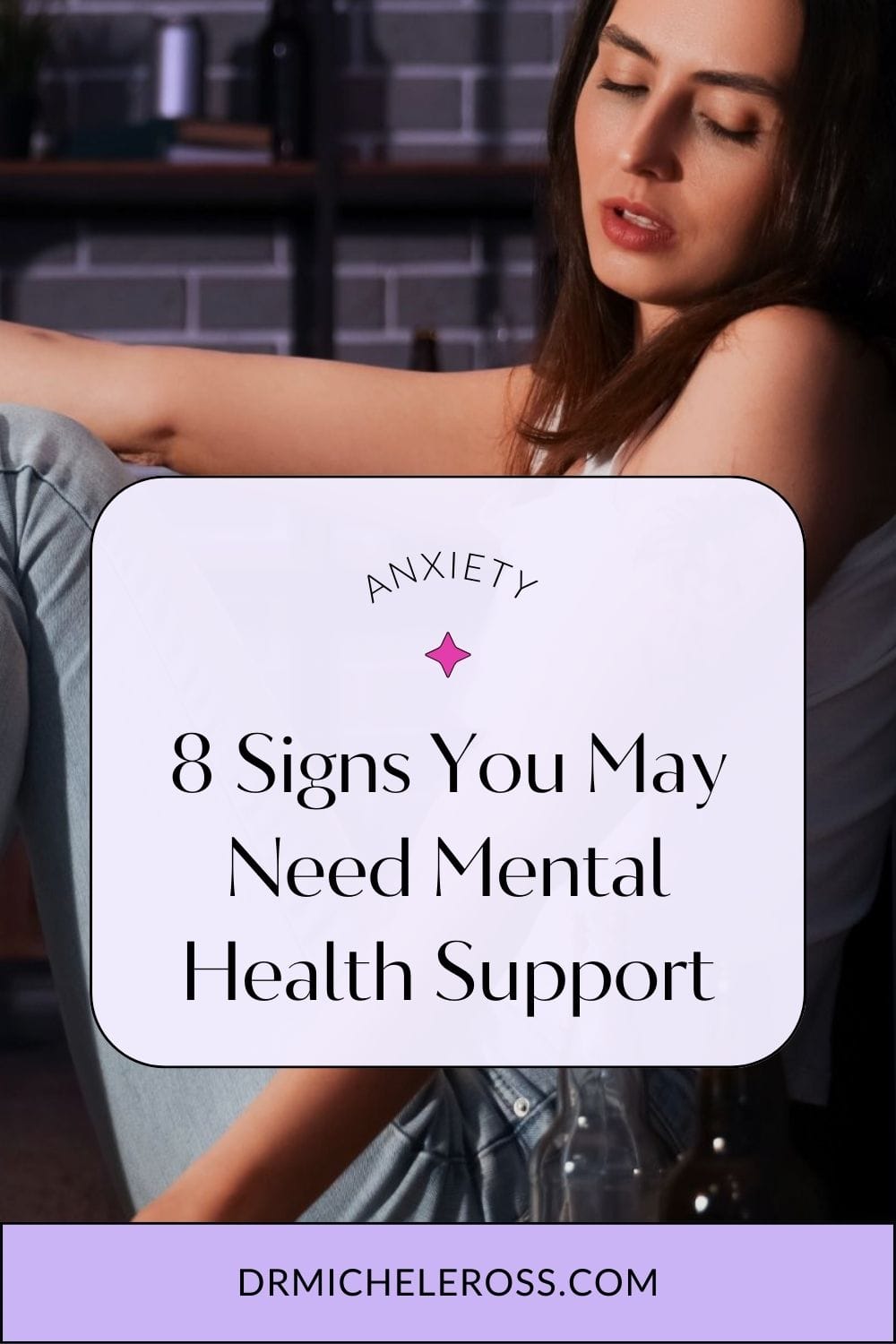
One in two people will experience a mental health disorder or crisis at some point in life. It’s so important then that you learn the signs of a mental health crisis so that you are able to help yourself or your loved ones should they be the ones dealing with it. The problem is there’s often not a single sign, but there is a combination of signs that tell you that people are struggling around you.
Mental health disorders can start out as subtle changes to feelings, thinking and behavior. If there are ongoing and significant changes, it can be a sign that they are developing a mental health disorder. If something doesn’t feel quite right, it’s important to have a conversation about getting some help.
The list of signs that we have for you here is not meant to help you to diagnose a mental health disorder because you need a professional for that, but they are to make you aware of what to look for and when there may be a good reason to be concerned and seek the correct help.
Mental health treatment is not easy to come by and sometimes people have to fight for it. While that may seem like a very unfair way of looking at things, it’s just the reality of the health systems across the world. With this in mind, being mindful of the signs of needing mental health treatment is better than waiting it out and having a negative outcome.
Let’s take a look at some of the signs that you may need mental health support so that you can recognize them within yourself as you need to.
1. Your anxiety or worrying is 24/7.
We all feel worried day-to-day. We all feel anxious day-to-day. But there is a difference between the general worrying and anxiety compared to the type of anxiety required when you need mental health treatment. Most people feel worried or stressed from time to time. Anxiety can be a sign of mental health illnesses if the worry is constant and interferes with daily activities. For example, if you are anxious about going outside where there are a lot of people to the point that you stop going outside, that’s a big problem.
The physical symptoms of anxiety can include heart palpitations and shortness of breath, which can make you feel like you’re having a heart attack. If you’re dealing also with chest tightness, headaches and sweating, then this isn’t good for you or for anybody else.
2. You’re feeling depressed or unhappy.
Depression and anxiety often walk hand in hand. But unhappiness and depression can range from feeling sad, irritable, or numb to lacking your motivation. You can feel low because you don’t like your job, but then you can feel so low that you can’t get out of bed.Its important to recognise the differences between depression and unhappiness.
3. You have emotional outbursts.
Everybody has different moods at different times, and moods tend to swing from left to right. But if you’re having sudden and dramatic changes in mood that are ruining your day and they’re really starting to affect people around you, this can be a symptom of a mental illness that you are not aware of. Extreme distress or anger, high highs and low lows can really put you in a pinch. Speaking to your doctor to get a psychiatric referral is often a good idea, just in case there is a diagnosis that you’ve missed out on.
4. You’re struggling with your sleep.
The changes to a person’s sleep patterns could be a symptom of a mental health disorder, but this can also include insomnia or sleeping too much. Some people can sleep all day and be up all night and other people can’t sleep at all. Maybe you’ve managed to reverse your body cycle so that you are awake through the night and you’re not even on night shift. This nocturnal way of living is not good for your circadian rhythm and if you’re struggling with your sleep, you need to go to your doctors so that you can be given medication to help you get back on track.
5. You’re gaining or losing weight at a rapid rate.
For some people, eating more or less than usual weight gain or even rapid weight loss without trying can be a very big warning sign of a mental health disorder. If you are skipping meals due to anxiety dampening your appetite and losing weight, that’s not necessarily a good thing. In fact, your body can become so lethargic that you are unable to carry yourself. It’s important to recognise when this is happening so that you can be aware of it.
6. You are more quiet than usual.
Withdrawing from life is a big sign that you need some mental health treatment. Life is supposed to be enjoyed, after all. We only get to go on this ride once, so it’s important that we treat it like that every single day. If withdrawing from life is a major change from your usual personality, there could be an indication of a mental health disorder that you’re unaware of. If you notice friends or family withdrawing from you and from their lives, you would soon be one speaking up and saying that this isn’t OK, so don’t let it be OK for yourself.
7. You’re turning to substance abuse.
Using substances to cope, such as alcohol or drugs, is a big sign that there are mental health problems going on. Some of those substances can also cause mental health illnesses and the last thing that you need is to have that added to your life. It’s important that you don’t turn to alcohol or drugs in times of need and if you are starting to turn that way, recognize those signs and turn towards your doctor for help.
8. You feel suicidal.
Some mental health disorders can cause somebody to feel suicidal, and if you are feeling that desire to hurt or kill yourself, or you are thinking about ways that you can die, you need to get some help as soon as possible. While your mental health disorder will be telling you that the best thing for everybody is for you not to exist, others in your life won’t be feeling that way.
The best time to get help is now
Recognizing the signs of mental health struggles is crucial for seeking timely support, as many individuals may experience subtle changes that indicate a deeper issue. Being aware of these signs can empower you or your loved ones to take proactive steps toward healing and well-being. It’s crucial to get help before something serious happens.
Pin This Post





